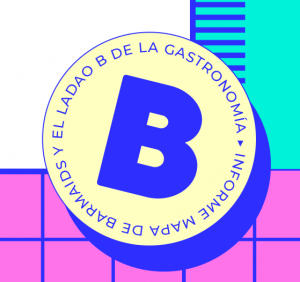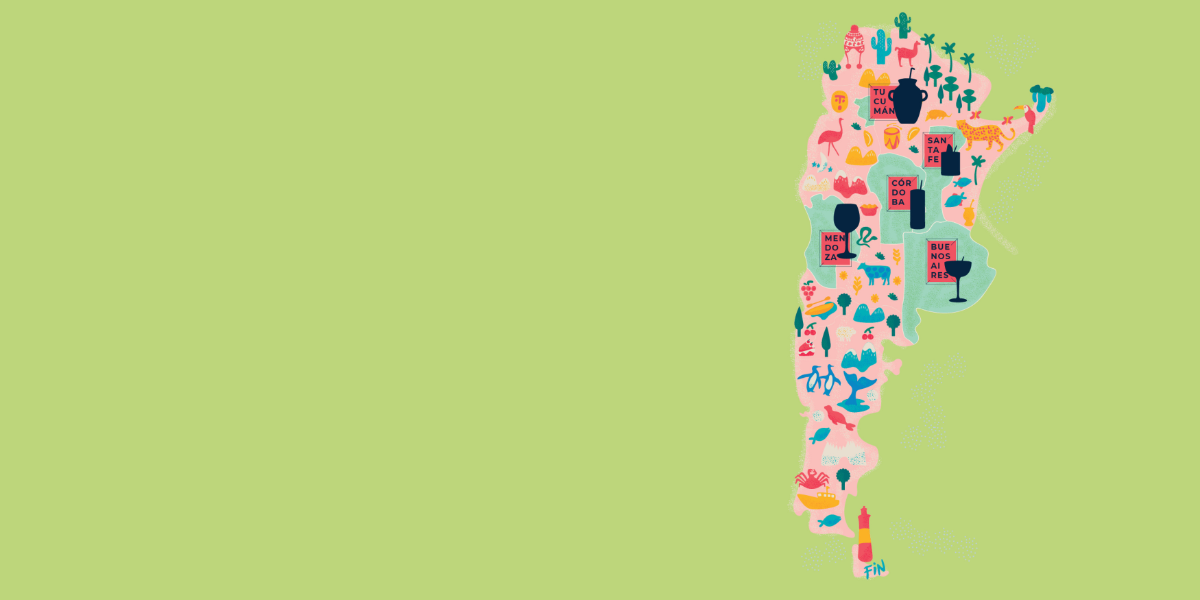Maps as a tool of change: Mapa de Barmaids & Afines, a gastro feminist and Latin American platform
by Laura Marajofsky*
Read the Spanish version here.
Why a Map?
When I talk about our platform Mapa de Barmaids & Afines, many people ask me “Why a map?” And I usually answer with “Why not a map?” From the beginning of this project, we always thought it was important to focus on both the networks that are woven virtually and in person, and an online map seemed like the perfect way to combine both things: an online community and projects that take shape in the real world through hundreds of LGBTQIA+ women and minorities working throughout the region.
In addition, maps can create social change when they reveal aspects of reality that often go unnoticed or simply are not being seen – in this case the impact of the female workforce – they connect people and help form networks, and they raise awareness about different issues. Further, they help us extrapolate that for certain issues such as prejudice or gender violence, there are no geographical borders: the experiences are the same beyond latitude or culture. Maps also help build individual and collective identity, and they enrich our idea of diversity and gastronomic heritage.
That is why we chose to build our web platform based on the maps of countries such as Argentina and Mexico, among others. For a few years now, the Mapa has transcended the boundaries of Argentina to become something more. A safe space for victims of various forms of violence within the sector. A reference for critical and proactive observation and the first Observatory of its kind in LATAM (which produces gender and health indicators in hospitality). A place for meeting other women and LGBTQIA+.
What do we do?
 Mapa de Barmaids & Afines is the first platform to recognize and empower women in the hospitality industry in Latin America. We are an NGO based in Buenos Aires, created in 2018, that maps women and LGBTQI+ professionals in different countries. From the beginning, we understood the intersectionality of the industry’s problems and challenges, which is why we primarily focus on three areas: gender, health, and education.
Mapa de Barmaids & Afines is the first platform to recognize and empower women in the hospitality industry in Latin America. We are an NGO based in Buenos Aires, created in 2018, that maps women and LGBTQI+ professionals in different countries. From the beginning, we understood the intersectionality of the industry’s problems and challenges, which is why we primarily focus on three areas: gender, health, and education.
We have led programming against sexist violence in the industry from the public and private spheres in different Latin American countries such as Peru, Chile, Mexico, and Uruguay. We have worked together with brands and international platforms (Speed Rack, Healthy Hospo, Not9to5, The Chaad Project, etc.) and engaged with communities and local stakeholders. In other words, we have grown our network because that is where our strength and greatest value lie.
What is happening in terms of diversity, inclusion and collective organization in the field of hospitality in Latin America?
In recent years, women and LGBTQIA+ people have gained ground in different areas of society, which has contributed to greater visibility of our civic participation within and outside the professional sphere, and has raised awareness in our environment regarding the scope of gender discrimination – with a reflection on what equality and equity mean.
Despite such progress – which has been the result of the ongoing struggle of women and minorities for our rights – in 2025, hospitality in LATAM continues to be a male-dominated space where difficulties and limitations arise due to a way of living in which women and minorities are considered second-class citizens – at best – or objects – at worst. This becomes evident when reviewing statistics including leadership positions held by women, pay gaps, mistreatment and abuse by male colleagues and superiors, and sexist and discriminatory attitudes, among other things.
That being said, insufficient data is collected along the lines of gender, which often results in generalizations across the industry. One-off success stories that glamorize female or minority-owned restaurants tell a misleading story, perpetuating the idea that sexism and workplace violence are no longer barriers to advancement. This leads to the false idea that violence affects all people equally and the gender approach is diluted. Without better data, it’s challenging to accurately assess the failures of the hospitality industry, which impacts so many in our workforce: from entry-level employees to those with multiple degrees.
Production of gender and health indicators
Without data, we are in the dark. Having statistical support is crucial to be able to make adequate diagnoses and draw up strategies and actions aligned with the main challenges and problems of the sector. Keeping this flame lit is especially crucial when times are tough- more so in the Argentine context in which this editorial is written – not only as a guide, but also as a gesture of conviction and commitment to the rights of women and minorities, and with the belief that we deserve a more just, equitable and diverse world.
That is why for six years we have been undertaking the task of generating data independently from our Gender and Health Observatory for Latin America. In 2023 we published “The B Side of Hospitality: Sexism and Precarity in the Culinary Sector (2023),” the first gender in hospitality regional report that investigates the perception that women and LGBTQIA+ who work in this sector have about their work situation, the conditions they experience on a daily basis and sexist treatment. In order to get closer to reality and to know the similarities or differences that arise in the different sociocultural contexts in such a vast continent, we shared a questionnaire in the three countries where we had direct representation: Argentina, Chile and Mexico(1).
The challenges that lie ahead in the hospitality sector in Latin America require a critical, innovative, and empathetic view, and above all, that it be from the South by the South, since the characteristics and problems of our region are not comparable with those of the Global North and, to that extent, the solutions must come from here in a way that adequately addresses our realities.
The personal is political, even in hospitality.
That being said, it doesn’t mean that many of the things that are being done from the Global South cannot serve as inspiration to provide another perspective on the problems of North America. This is especially true in countries like Argentina, which has a deep-rooted and globally acclaimed tradition of social movements (including human rights movements such as Las Madres de Plaza de Mayo and Ni Una Menos, which long before #MeToo helped establish the legal figure of femicide in our country and mobilized the entire region in relation to gender violence and structural inequality). Struggle, collective action, and social justice are embedded in our DNA – characteristics that helped us secure the legalization of abortion in 2020, or take to the streets in mass protest of our current administration this past February. This, combined with the famous “Argentine creativity” (forged through numerous economic and political crises), has led to a culture brimming with small-scale organizations and projects, which, despite their scrappiness, continue to evolve and grow their impact.
Mapa is proof that even if you are a small entity or have few resources, it is possible to do something to change the reality around you. It is not necessary to wait for state or private sector support -although it is desirable- to come together, organize, and build collectively. When I talk to my friends in the USA, they are often surprised that a simple non-profit organization -which does not receive any support- has managed to tackle so many complex issues: from executing an education campaign against gender violence in bars and restaurants in the city of Buenos Aires; to publishing research investigating data along the lines of gender and minorities (much of which has been picked up by the press, and by brand street campaigns ). We continue to help shape the narrative around these issues and hope that our work can also be referenced in future attempts to improve public policy.
Our logic was simple because we have already internalized it as Argentines: in order to move the public agenda and achieve laws we went out to obtain data (our country has numerous independent and very serious observatories dedicated to measuring femicides, gender gaps, etc.), then we have to do the same in hospitality with a focus on gender violence, job insecurity, and health outcomes. If the solution was to create virtual and in-person networks and take to the streets to win rights, Mapa also created spaces of safety, connection, and support during these years.
Living in countries like Argentina, where the daily scenario is changing, taught us to learn to pivot, improvise, or adapt, solving problems creatively and without depending on anyone, sometimes with more ideas and desire than money. These soft skills are often undervalued, especially in societies in the global north where the institutional framework or “official” channels are overvalued. Survival skills in situations like a global pandemic, or with the growing economic recession and the new and destabilizing political panorama in the world, could become increasingly useful and necessary.
It’s our belief that individuals and smaller-scale organizations (for-profit and nonprofit alike) could learn a lot from our work, our creativity, and our perseverance. Our voice is more powerful than we realize, even more so when organized collectively. The personal is political—beyond affiliations since politics permeates all of our lives—and it’s never too late to ensure you’re heard.
Agents of change
How can the hospitality industry adapt to ensure long-term success while fostering innovation, inclusion, and resilience? Learning from what is happening elsewhere, learning about other cultures and projects and how they are tackling the same challenges, and moving away from the ethnocentric and sometimes self-absorbed logic that there is one right way to do things, is essential to evolving within the industry.
We believe that our platform has an innovative imprint, integrating technology and the power of maps, grassroots, and feminist movements throughout LATAM, and serious research in a project that aims not only to improve the industry but also to open new discussions and push the public and political agenda in our countries.
There is unanimity regarding the lack of a gender perspective in the gastronomic field and the need to make progress on these issues. What is needed now is for research like ours to be carried out more regularly – and with better financial support – in many more countries throughout the region. This is the only path forward to making more informed decisions that ensure the safety of the hospitality industry, and all who work in it.
*Laura is a journalist specialized in culture, society and gender, she writes for various media outlets in LATAM such as La Nación, Forbes, Crisis, Volcánicas, La Diaria and Anfibia. She works as a creative consultant and project mentor. She ‘s the founder of Mapa de Barmaids & Afines and also researches and is a speaker on DEI in hospitality.





